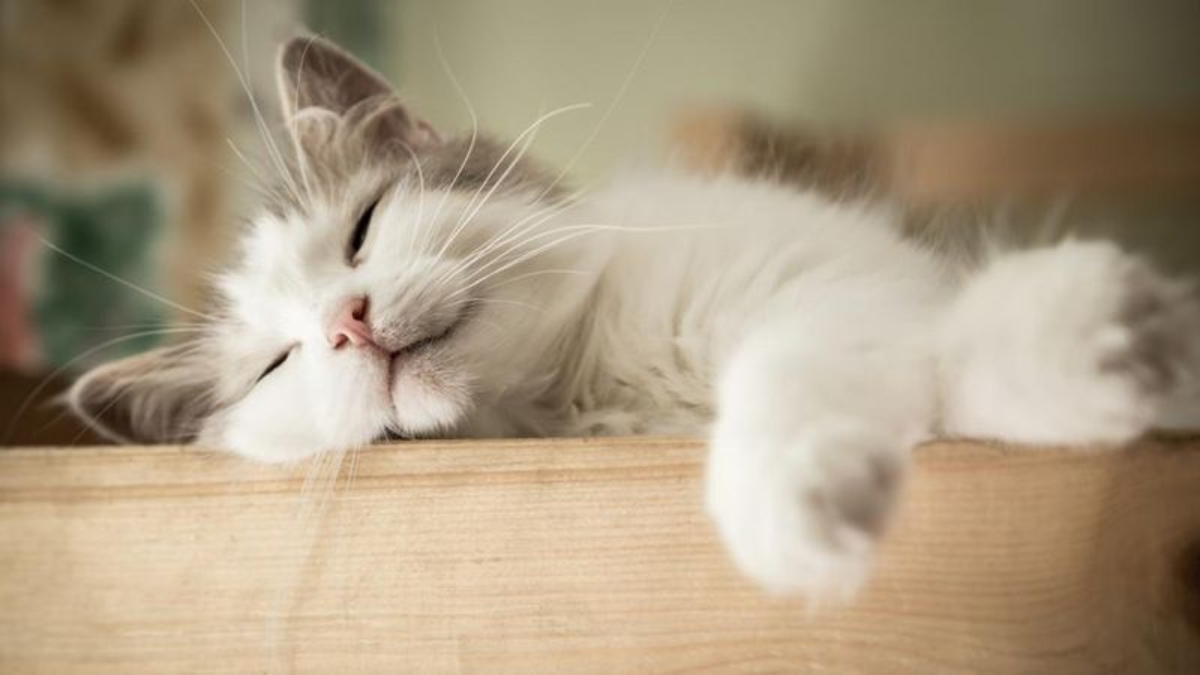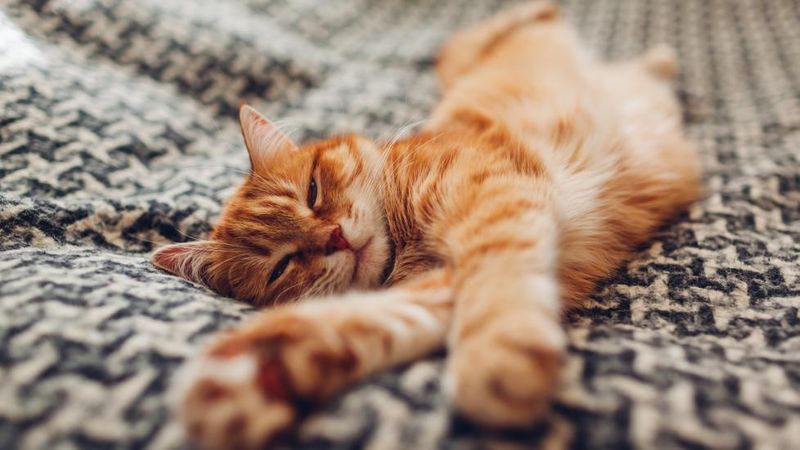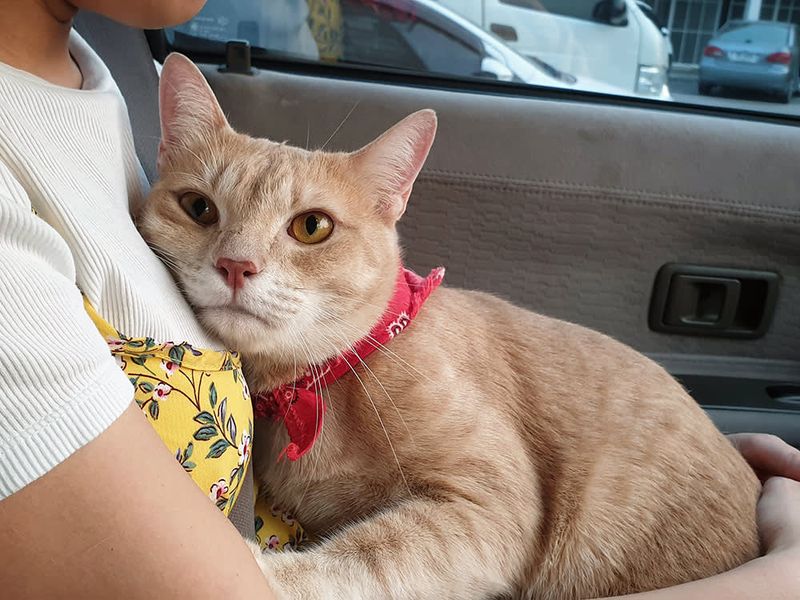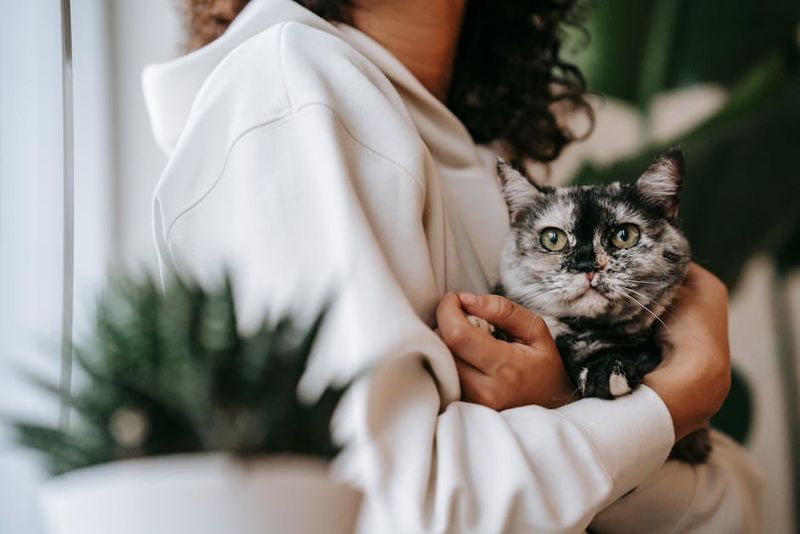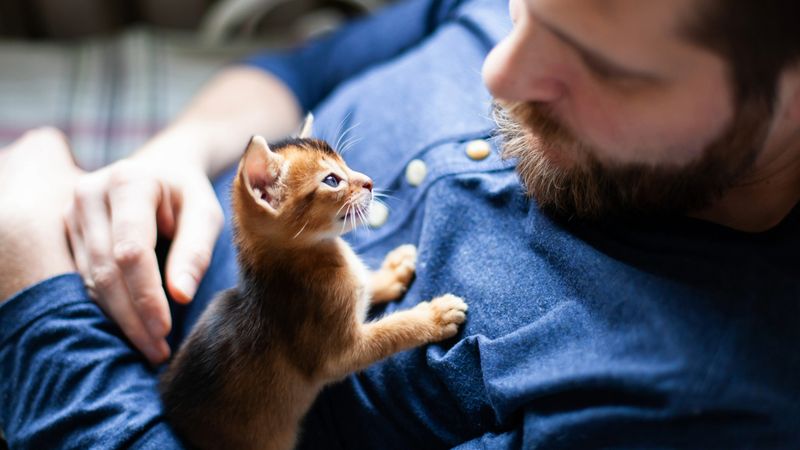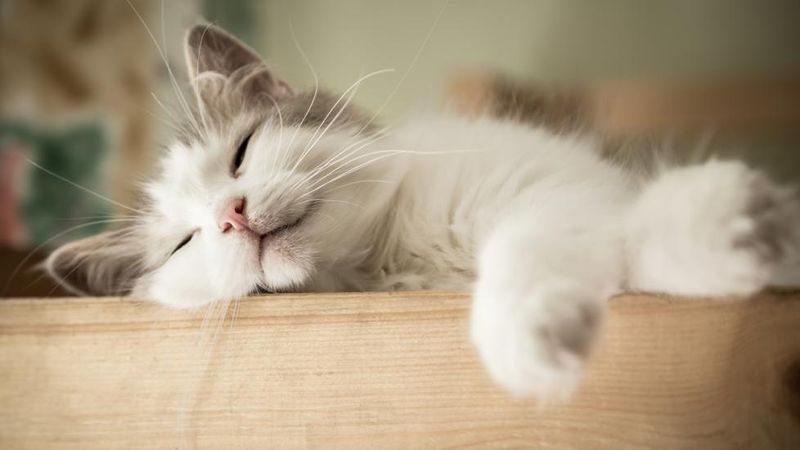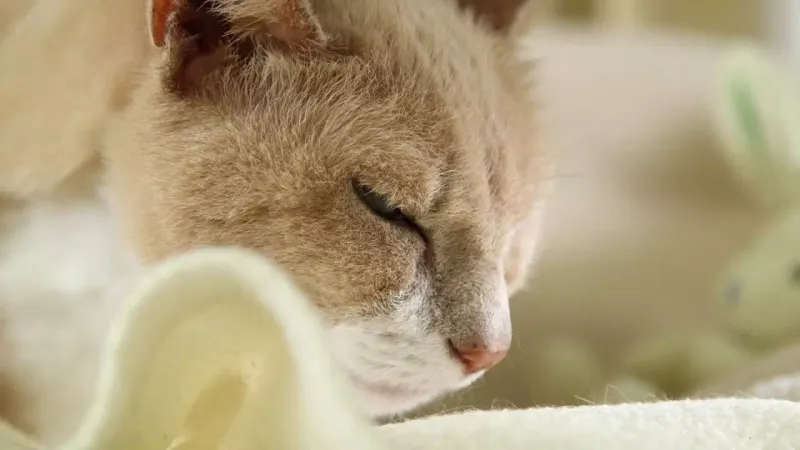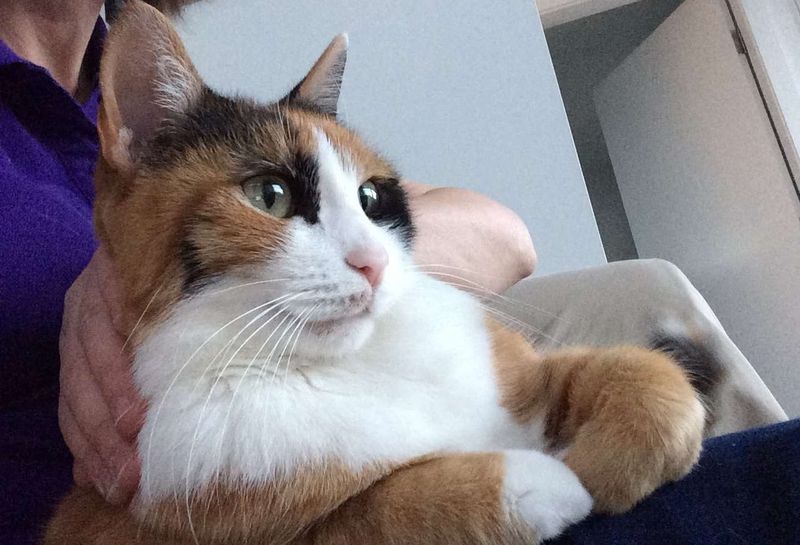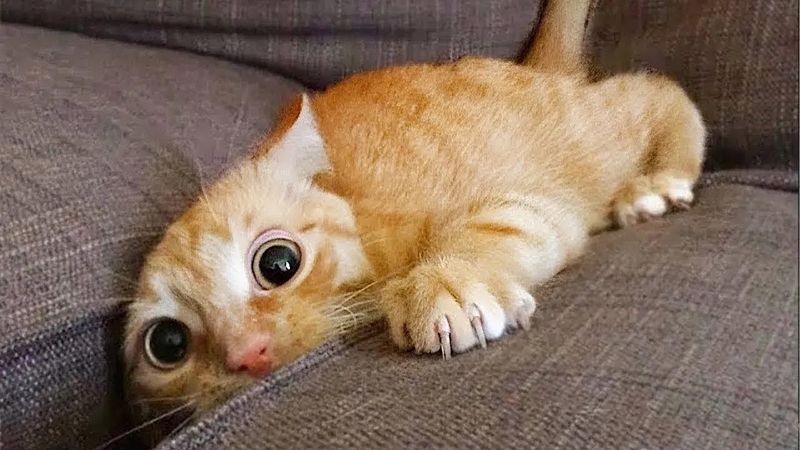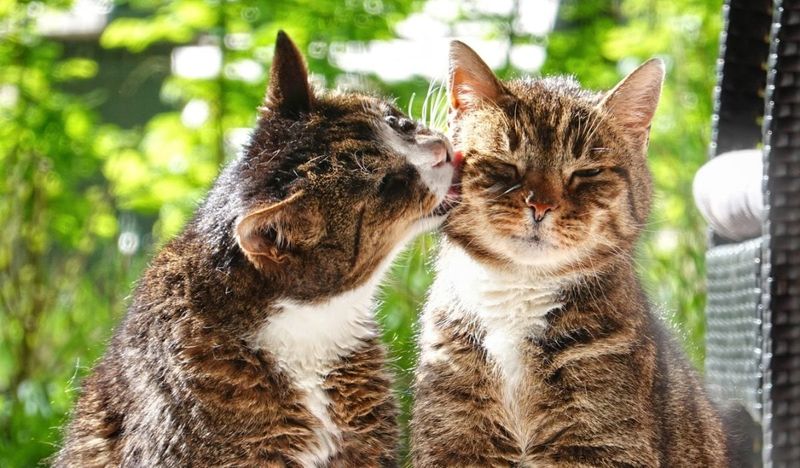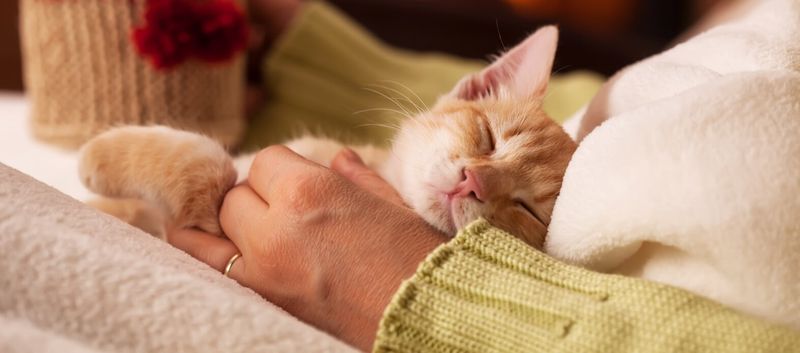📖 Table of Content:
Cats have a quiet but powerful presence that can bring comfort and calm into any space. Their soothing behaviors and gentle routines create a sense of stability, even during chaotic times. Many people find peace simply by sharing a room with a relaxed, purring cat.
The emotional support offered by cats often goes unnoticed but runs deep. Whether curling up beside someone during a difficult day or sensing when comfort is needed, their intuition is remarkable. This natural sensitivity makes them valuable companions for mental and emotional well-being.
Beyond their emotional impact, cats can also influence physical health in subtle ways. Studies have linked purring to stress reduction and lower blood pressure, highlighting their potential as natural healers. With their quiet loyalty and calming presence, cats offer more than affection—they provide a kind of everyday therapy.
1. Purring Magic
The rhythmic vibrations of a cat’s purr operate at frequencies between 25 and 150 Hz, which scientists have discovered can promote healing in human tissues and bones. When your feline friend curls up on your chest and starts their motor-like purring, they’re actually providing a natural form of therapy.
Many cat owners report reduced stress and lower blood pressure when spending time with their purring companions. The consistent vibration works like a gentle massage for your nervous system, releasing tension you might not even realize you’re carrying.
Cat purrs also stimulate endorphin release in our brains, creating a natural painkilling effect that can help with headaches and minor discomforts.
2. Stress-Busting Companions
Stroking a cat’s soft fur triggers an immediate chemical reaction in your body. Your brain releases oxytocin, serotonin, and dopamine—the feel-good hormones that combat cortisol, the stress hormone. This chemical cocktail creates a natural calming effect, similar to meditation.
Studies show that cat owners typically have 30% fewer heart attacks and strokes than non-cat owners. The simple act of petting your feline friend for just 10 minutes can lower your blood pressure significantly.
Cat owners often develop healthy routines around their pets’ care, which provides structure and purpose—key elements in managing anxiety and depression.
3. Silent Empathy
Cats possess an uncanny ability to sense emotional distress in their humans. Many cat owners report their feline friends appearing at precisely the moment tears begin to fall. This emotional radar system makes cats extraordinary companions during grief or sadness.
Unlike some well-meaning humans who might offer unwanted advice, cats simply offer their presence. They’ll curl beside you, providing warmth and companionship without judgment or expectations. Their silent support creates a safe space for processing difficult emotions.
Research indicates that bereaved individuals who have cats adapt to their loss more effectively than those without animal companions. The routine care requirements also prevent complete withdrawal during emotional difficulties.
4. Heart Rate Harmonizers
The steady rhythm of a cat’s heartbeat can synchronize with our own heart rates, creating a calming effect during moments of anxiety. Cardiologists have noted this phenomenon, where human heart rhythms gradually align with a cat’s more steady beat when the cat rests on their chest.
Cat owners experience this benefit during sleep too. Those who let their cats sleep beside them report deeper, more restful sleep patterns compared to those who don’t. The cat’s steady breathing and warmth create ideal conditions for relaxation.
For people with hypertension, this natural regulation effect can supplement medical treatment. Regular cuddle sessions with your cat might be one of the most enjoyable forms of heart health maintenance available.
5. Routine Guardians
The predictable nature of cats fosters consistency in household routines. Their daily breakfast reminders often prompt owners to wake up at the same time each morning. This kind of regularity has been linked to improved mood, focus, and overall mental health.
For individuals struggling with depression or executive function challenges, a cat’s needs provide gentle but firm accountability. Even on the hardest days, the responsibility of caring for another living being can be enough motivation to get out of bed.
Many therapists recommend pets like cats for establishing a routine during recovery from mental health episodes. The structured care requirements create anchoring points throughout the day without the higher demands of dogs.
6. Mindfulness Teachers
Living in the moment comes naturally to cats, while humans often need meditation to get there. A cat engrossed in play or resting peacefully in the sun demonstrates effortless mindfulness. Simply watching can draw people into a calmer, more centered frame of mind.
Their focused attention on simple pleasures—the perfect sunspot, a gentle breeze through an open window—reminds us to appreciate small joys. Cat owners often report pausing their busy thoughts to simply watch their cat’s peaceful existence.
This natural mindfulness training helps combat the constant future-thinking and rumination that fuels anxiety disorders. Spending time observing your cat can become an informal meditation practice that grounds you in the present moment.
7. Touch Therapy Experts
Physical contact with cats fulfills our fundamental need for touch—a necessity that’s often overlooked in our increasingly digital world. The simple act of a cat kneading your lap activates pressure receptors that trigger your parasympathetic nervous system, counteracting stress responses.
People living alone particularly benefit from this aspect of cat companionship. The daily physical interaction provides the skin-to-skin contact humans require for emotional wellbeing, helping prevent touch starvation that can contribute to depression.
Therapeutic programs now bring cats into nursing homes specifically for their touch benefits. Residents who rarely receive physical contact show measurable improvements in mood and social engagement after regular sessions with visiting therapy cats.
8. Laughter Inducers
The spontaneous antics of cats trigger genuine laughter—from their improbable leaps to their dignified recoveries after embarrassing falls. This natural comedy has serious health implications, as laughter releases endorphins, reduces stress hormones, and increases immune cells.
Cat videos dominate internet content for good reason. Studies show that watching cat videos improves mood and energy levels while decreasing negative feelings. The combination of cuteness and unpredictable behavior creates perfect conditions for joy.
Even on difficult days, a cat’s sudden zoomies across the living room or puzzled reaction to their own reflection provides moments of lightness. This emotional relief valve helps people manage chronic stress conditions and process difficult emotions.
9. Social Connection Bridges
Owning a cat can open doors to conversations that might never happen otherwise. Whether it’s a chat with a neighbor or a stranger commenting on fur-covered clothing, cats often spark genuine human interaction. Over time, these moments weave a sense of connection and belonging.
Online cat communities provide vital social interaction for people with mobility limitations or social anxiety. These groups offer safe spaces to connect over shared experiences without the pressure of direct human interaction.
Rescue organizations report that volunteers often develop meaningful friendships through their shared mission of helping cats. The collaborative work of caring for vulnerable animals creates strong bonds between people from diverse backgrounds who might otherwise have little in common.
10. Unconditional Acceptance
In a world where social validation often feels constant, cats provide refreshingly unconditional companionship. They aren’t concerned with appearance, job titles, or popularity—they respond to kindness and consistency. Their loyalty is rooted in trust, not social standing.
This unconditional acceptance creates a safe emotional space that’s particularly valuable for people who face judgment or discrimination in their daily lives. The relationship with a cat becomes a refuge where they can be authentically themselves without fear of rejection.
Therapy programs for trauma survivors often incorporate cats because of this quality. The simple, honest interaction helps rebuild trust and self-worth damaged by complex human relationships, providing a stepping stone toward healing.
